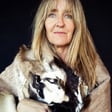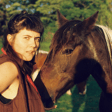
End of Life Matters with Pippa White
Shrug off the cloak of secrecy and awkwardness around death with palliative care nurse Pippa White. I’ve been wanting to bring a death convo to the airwaves for ages, because there’s a huge imbalance between light/dark, above/below, waxing/waning, growth/decay, possessing/relinquishing energies in our culture (and I'm the first person to perpetuate it). Shout out to everyone who sent frank and thoughtful questions for Pippa to answer – you’ll hear them towards the end of the ep.
Pippa White is a palliative care nurse and death care advocate and educator in the Anthroposophical tradition. We discuss:
🖤 What is Anthroposophic philosophy?
🖤 Death care rituals, balms and vigils
🖤 Windows into the reality of spirit from people in transition
🖤 Why to “do the work” at the eleventh hour
🖤 Soothing suffering without drugs
🖤 How painful is death?
🖤 Different ways to relate to pain
🖤 Small, slow solutions to dying (tiny local end of life retreats)
🖤 Pet euthanasia, yay or nay?
🖤 How to deal with loved ones in denial?
🖤 Can you make a living in end of life care?
🖤 How do you document/cherish a life?
🖤 What folks find difficult when dying?
🖤 Grieving to breathe and to love
🖤 Birth and death thresholds
LINKY POOS 🧙♀️
Anthroposophical Society Australia
What is Advance Care Planning?
[poem] Do Not Go Gentle into That Good Night by Dylan Thomas



















